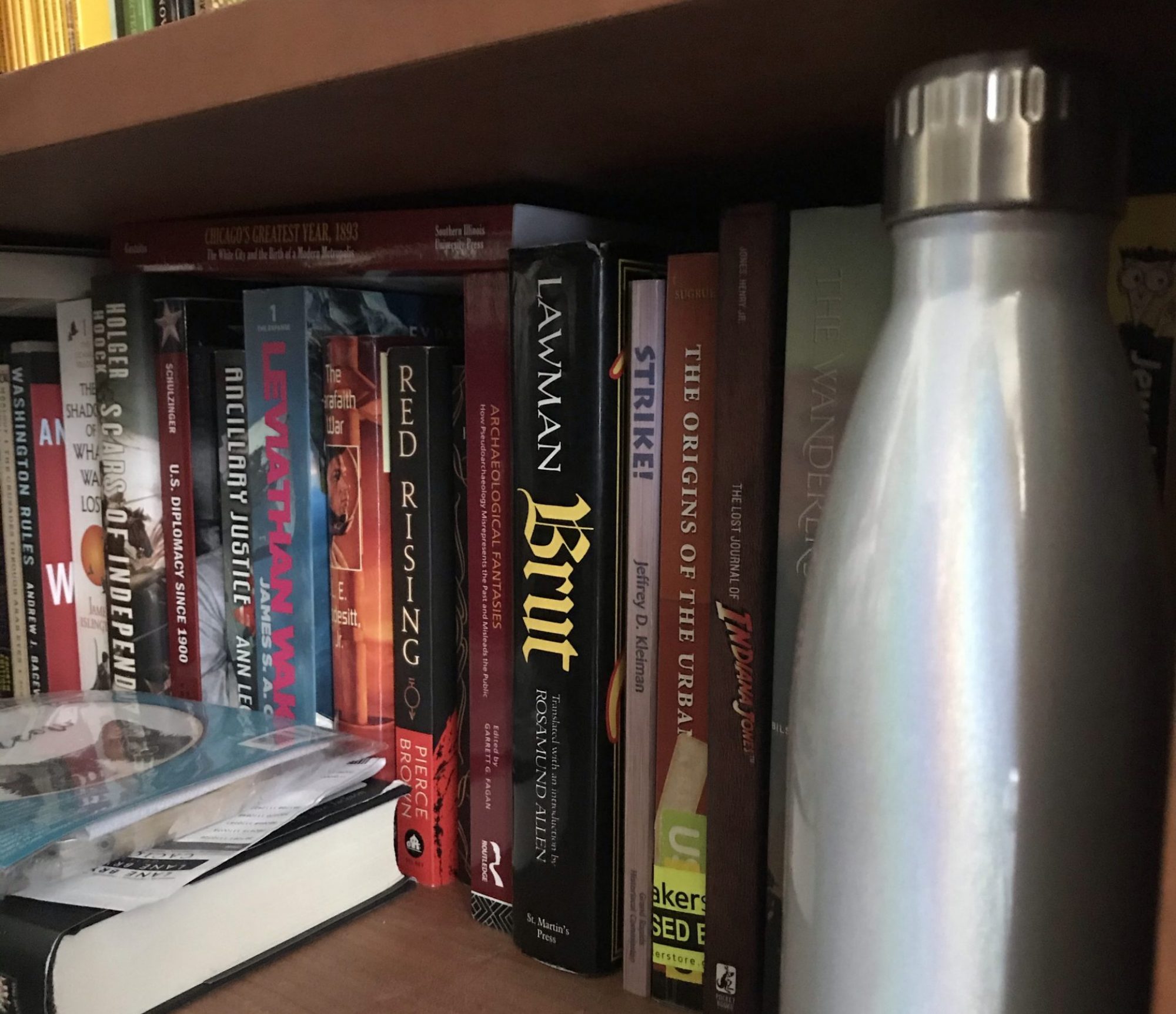It’s no secret to a lot of people who know me–in the wake of not getting one last little bit of feedback from my late advisor at the end of the Winter 2009 semester, I took a long break from my thesis work. It was something I probably shouldn’t have done, but I kept expecting to get somethingfrom him after I sent one last update to him this past April. But nothing. We corresponded via e-mail about some housekeeping things regarding my thesis and he said he would get to the submission, but he never got back to me. In some morbid way, I wonder if it’s sitting there on his hard drive with a mess of fantastic comments just waiting to never be sent. But I suppose I’ll never know.
For the past week since I heard about his death, I’ve been avoiding really trying to work on my thesis, instead focusing on a paper I need to submit for the Great Lakes History Conference, deadlined in mid-October. But the research overlaps a bit when I start reading about Edward I, and that’s tripped synapses in my brain that have pointed me back toward my thesis. This is dangerous, considering that I don’t even know that I’ll even have this be my thesis come next week, or come the end of the OUAAUP strike, whichever happens first (personally, I’m hoping it’s settled after negotiations today so I won’t actually miss any of my classes this semester). It’s in part hinging on a conversation I need to have with Karen Miller, the head of the history department here at Oakland University. But in the end, I don’t know what’s going to happen other than I have a pile of research and information floating around in my brain that may turn into a book someday, regardless of whether or not it becomes my master’s thesis. I’m sure if I have to change gears and start another project, I can find something. I’m just not sure at this point what.
When I went to Dr. Finucane a couple years ago to talk about potential thesis ideas, I brought with me a short list of potential topics. I’d originally wanted to do something with the Crusades, but I don’t speak French or Arabic (to be honest, even my Latin is shaky at best, though I’m working on that) so it would be very difficult for me to do that sort of research. So changing gears, I brought the following list:
– Impact of the War of the Roses on English society
o Potentially limited to women, church, or the aristocracy?
– Hundred Years War
o Religion and politics
– Folk beliefs and spirituality in late medieval England
o Mysticism in England?
o English Saints? Shifting views of what was seen as evidence of the divine working through a person or related to a person? (ties into witchcraft, ect)
– Kingship and royalty in England, late medieval
o Touches on the political and diplomatic; alliances through marriage, blood claims to “foreign” territory – importance of women in this context?
o Political legitimacy and the tools used to convince people of such
– The Black Death
o Impact on cultural norms and religion
– Mystics and miracles in late medieval England
– Pilgrims and saints
– Left field: Arthurian mythos and its impact on English culture orthe historical evolution of the Arthurian mythos
o Use of the Arthurian mythos by English royalty
o Folklore and stories of medieval England
I had hesitated to even bring to him that last topic–about the Arthurian mythos. But I’ve been fascinated with it for easily ten years, so I put it on there, never dreaming that he would look at that and say “Hm. That’s interesting. Why didn’t you think you could do that, again?” Necessary cutting brought the project down to a manageable size and focus, bringing me to where I am now, looking at the uses of the Arthurian legend under (and mainly by) Edward I and Edward III (and consequently the failure to use it by Edward II). Looking back, I think I’d write on any of those subjects, except for perhaps the Black Death–which is fine, since the Plague has been done to death (no pun intended). But if I have to change my thesis topic, would I be able to do any of those? The Hundred Years War, perhaps, since my second reader is a specialist in French history. But this having been said, I don’t read or speak French (though I have to learn). It would be a difficult project to gather primary source material for.
The medieval period is something I’m fascinated by and would rather write about than the Renaissance, which I have a feeling would be the period I would end up having to write about, simply based on the makeup of the department. But we’ll have to see. I was blessed to work under one of the most preeminent medieval historians of the past thirty years, but cursed to lose that mentorship before my thesis was complete. Only time will tell what’s going to become of the work I began under his tutelage.

